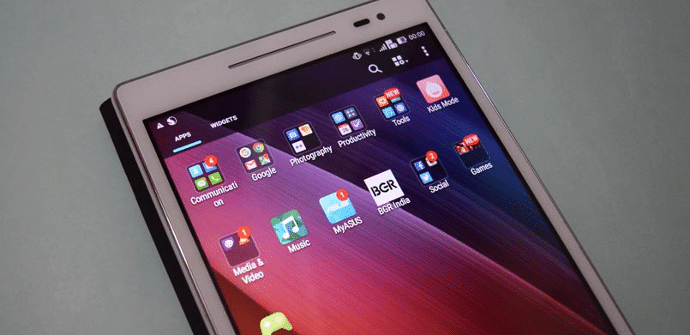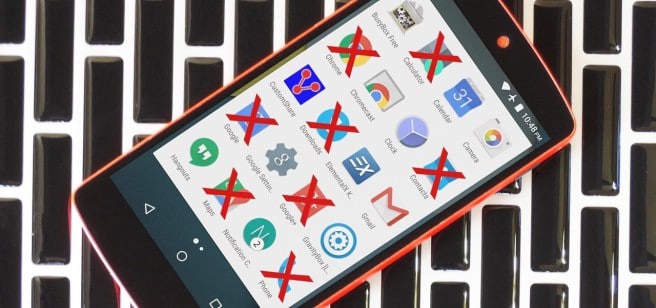
El bloatware It is, from the very origins of the concept, one of the elements that can most displease users, and even influences them when choosing a tablet or smartphone. Are pre-installed applications They not only occupy space (sometimes unnecessary) in the internal memory of the devices, but also sometimes, they hinder their operation.
Is any pre-installed app bloatware?
One might think that the bloatware they are all the applications pre-installed in a terminal, although that definition is not always precise. Let's go by parts. A first layer would be formed by most basic apps: calendar, calculator, phone, camera, gallery, etc. Some manufacturers choose to leave the tools Android AOSP (similar to those that we will see in Nexus), although the most important companies usually include their own developments. Few consider these services to be bloatware, as well as few (although some more) use that term to refer to the google apps: Gmail, Maps, YouTube, Chrome, etc.
Manufacturer applications, not always positive
Some manufacturers even go one step further and begin supplementing with Microsoft, as Samsung has chosen to do in its last generations within the high-end range. This clearly already looks more like bloatware, as well as the manufacturer's own apps, S Health style (Samsung), Zoe (HTC), Walkman (Sony), etc. The point is that in the end it is a concept that ends up being pejorative and is often used to refer to services that They "annoy" rather than help, although that is something that logically varies a lot depending on the user profile.
Finally, it is worth mentioning certain successful applications that some companies (usually low cost firms) introduce on their computers, like Facebook, Candy Crush or Angry Birds. This is, perhaps, the most unnecessary type.
From the moment the bloatware They are apps that may be running in the background on our Android tablet, the answer is yes, the pre-installed applications they can consume the battery of a device, the question is ... really, do they? The answer in this case is: it depends.
When do pre-installed apps consume battery?
It is necessary to check case by case. In a Galaxy tablet pre-installed applications are seldom going to generate relevant consumption if we do not use them directly, because they are well optimized tools. In a Xiaomi Mi Pad, the thing changes. The Chinese manufacturer has applications that keep working frequently and offer us to perform different tasks (cleaning, updates, synchronization in the cloud) necessarily consuming resources in the terminal. In a phablet with more than 4.000 mAh like the Notes redmi 3 Pro it will not be a great inconvenience, however, in the first Red Rice it was very necessary r the team and uninstall or lock some services to extend the autonomy of the device.
How to deal with consumption generated by bloatware
The first thing we must do is identify those applications that are making a hole in the terminal. To do this, just go to the Settings > Battery and see the consumption data of the disaggregated apps on that screen. In many cases, manufacturers allow disabling their native apps from Applications in Settings. There we select any one of them and check if the option is available. If it is an app that we consider essential for our day to day, but further development makes it swallow too much, we can always try replace it on the other from Google Play.
Recommendations
In a Samsung team, it is usually going to matter, because we already said, the apps of this company are well written. However in tablets low cost it is worth considering the presence or not of bloatware before we get a team, for one a matter of both space and performance. The more the pre-installed software resembles Android AOSP, the better, since the rest can be downloaded according to our criteria from the Play Store.
